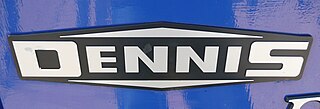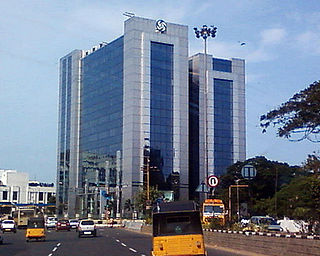W.J. Bence (1891–1944)
William J. Bence, a wheelwright, started a horse-drawn carriage business in 1891, connected many of the outlying villages with Bristol. He transported goods and was also glad to take passengers, particularly on market days. Bence moved into several other lines of business, including being an agent for chassis manufacturers such as Ford.
In 1919 Bence began a motor bus service from his base in Longwell Green. He began to build bus bodies on the chassis for his own service and for other bus operators. The chassis had been designed for military vehicles from World War I (1914–18). In 1922 Bence Motor Services was running 14-seat buses on a Ford Model T chassis. The W. J. Bence & Sons coachworks also built delivery vans. The company made Public Service Vehicles (PSVs) throughout the 1930s.
At the start of World War II (1939–45) Bence was asked to make vehicle bodies for the military, and the company was renamed Bence Motor Bodies Ltd. In 1941 W. J. Bence was the only firm willing to undertake conversion of a second-hand 50 hp Daimler car into an ambulance for city of Bath, at a cost of £325.
Longwell Green Coachworks (1944–83)
About 1944 the company was renamed Longwell Green Coachworks Ltd. By 1946 the company was offering bus, coach and commercial bodies. Coach bodies were built on chassis from Daimler and Maudslay, and 29- and 33-seat buses were built on the Leyland Comet chassis. The company built double-decker buses for the Bristol Omnibus Company on the Leyland Titan PD1 chassis. Longwell Green sold many bus bodies on chassis with underfloor engines to South Wales operators in the 1950s. For example, in 1957 Longwell Green supplied four single-deck motorbuses with Leyland Tiger Cub chassis to Cardiff Corporation. Between 1952 and 1957 Longwell Green was among the companies that built bodies for high-capacity Bedford pumping vehicles known as "Green Goddesses" for use by the Auxiliary Fire Service.
In 1960 the New Scientist reported that Longwell Green Coachworks had moulded a crane machinery house from Beetle polyester resin, the first time a complete crane machinery house had been made with structural plastics. The result was an elegant crane with reduced cost of construction. In May 1965 the plastics operation became L.G. Plastics.
Longwell Green Sports F.C., a football club, was formed in 1966 by workers from Longwell Green Coachworks during a period of great enthusiasm for football after England had beaten West Germany in the World Cup at Wembley. At the time Longwell Green Coachworks was the main employer in the area. The first pitch was laid out on what was then open farmland, and this is still the site of the team's home pitch.
Longwell Green Coachworks built both buses and lorries until 1966. Customers for the buses included the Cardiff, Newport, Aberdare, Gelligaer and Merthyr Tydfil corporations, and the larger Rhondda Transport Company and South Wales Transport. The lorries, vans and crew buses were bought by British Road Services, British Rail and the General Post Office. The last two buses were made in 1966, but the company went on building vans and lorries. In the 1980s the company made custom-built Range Rovers for use in the Middle East. Longwell Green Coachworks ceased operation in 1983.

Leyland Motors Limited was a British vehicle manufacturer of lorries, buses and trolleybuses. The company diversified into car manufacturing with its acquisitions of Triumph and Rover in 1960 and 1967, respectively. It gave its name to the British Leyland Motor Corporation, formed when it merged with British Motor Holdings in 1968, to become British Leyland after being nationalised. British Leyland later changed its name to simply BL, then in 1986 to Rover Group.

Dennis Specialist Vehicles was an English manufacturer of commercial vehicles based in Guildford, building buses, fire engines, lorries (trucks) and municipal vehicles such as dustcarts. All vehicles were made to order to the customer's requirements and more strongly built than mass production equivalents. For most of the 20th century the Dennis company was Guildford's main employer.

Ashok Leyland is an Indian multinational automotive manufacturer, headquartered in Chennai. It is owned by the Hinduja Group. It was founded in 1948 as Ashok Motors and became Ashok Leyland in the year 1955. Ashok Leyland is the second-largest manufacturer of commercial vehicles in India, the third-largest manufacturer of buses in the world, and the tenth-largest manufacturers of trucks.

Associated Equipment Company (AEC) was a British vehicle manufacturer that built buses, motorcoaches and trucks from 1912 until 1979. The name Associated Equipment Company was hardly ever used; instead it traded under the AEC and ACLO brands.

The Dennis Dominator was Dennis's first rear-engined double-decker bus chassis, it was launched in 1977.

Seddon Atkinson Vehicles Limited, a manufacturer of large goods vehicles based in Oldham, Greater Manchester, England, was formed after the acquisition in 1970 of Atkinson Vehicles Limited of Preston by Seddon Diesel Vehicles Limited of Oldham. In 1974, the firm was acquired by International Harvester, which sold it in March 1984 to the Spanish group Enasa which made it a subsidiary of Pegaso. In 1990, it became part of Iveco which used the brand for various types of specialised vehicles in the United Kingdom. The range of models produced included EuroMover, Pacer and Strato, which are aimed at refuse collection, recycling and construction operators.

The Leyland Titan was a forward-control chassis with a front-mounted engine designed to carry double-decker bus bodywork. It was built mainly for the United Kingdom market between 1927 and 1942, and between 1945 and 1969.

Duple Coachbuilders was a coach and bus bodybuilder in England from 1919 until 1989.

The Leyland Olympian was a 2-axle and 3-axle double-decker bus chassis manufactured by Leyland between 1980 and 1993. It was the last Leyland bus model in production.

Guy Motors was a Wolverhampton-based vehicle manufacturer that produced cars, lorries, buses and trolleybuses. The company was founded by Sydney S. Guy (1885–1971) who was born in Kings Heath, Birmingham. Guy Motors operated out of its Fallings Park factory from 1914 to 1982, playing an important role in the development of the British motor industry.

The Leyland Atlantean is a predominantly double-decker bus chassis manufactured by Leyland Motors between 1958 and 1986. Only 17 Atlantean chassis were bodied as single deck from new.

Park Royal Vehicles was one of Britain's leading coachbuilders and bus manufacturers, based at Park Royal, Abbey Road, in west London. With origins dating back to 1889, the company also had a Leeds-based subsidiary, Charles H. Roe.

The Bristol VR was a rear-engined double-decker bus chassis which was manufactured by Bristol Commercial Vehicles as a competitor to the Leyland Atlantean and Daimler Fleetline.

Sisu Auto is a truck manufacturer based in Raseborg, Finland. Its name comes from the Finnish word sisu meaning guts, grit and determination.

Charles H Roe was a Yorkshire coachbuilding company. It was for most of its life based at Crossgates Carriage Works, in Leeds.

Bristol Commercial Vehicles was a vehicle manufacturer located in Bristol, England. Most production was of buses but trucks and railbus chassis were also built.

The Ipswich Transport Museum is a museum in Ipswich, Suffolk, England, devoted principally to the history of transport and engineering objects made or used in its local area.
Eastern Coach Works was a bus and train bodybuilder based in Lowestoft, England.

Thames Valley Traction Company Limited was a major bus company operating services to and from Reading, Bracknell, Maidenhead, Newbury, High Wycombe and Oxford and surrounding areas for 52 years in the 20th century. For many years it ran the "Reading A" and "Reading B" limited-stop services between London's Victoria Coach Station and Reading via two differing sets of intermediate stops.
The Seddon Pennine RU was a rear-engined single-decker bus built by Seddon Diesel Vehicles/Seddon Atkinson between 1969 and 1974.


















